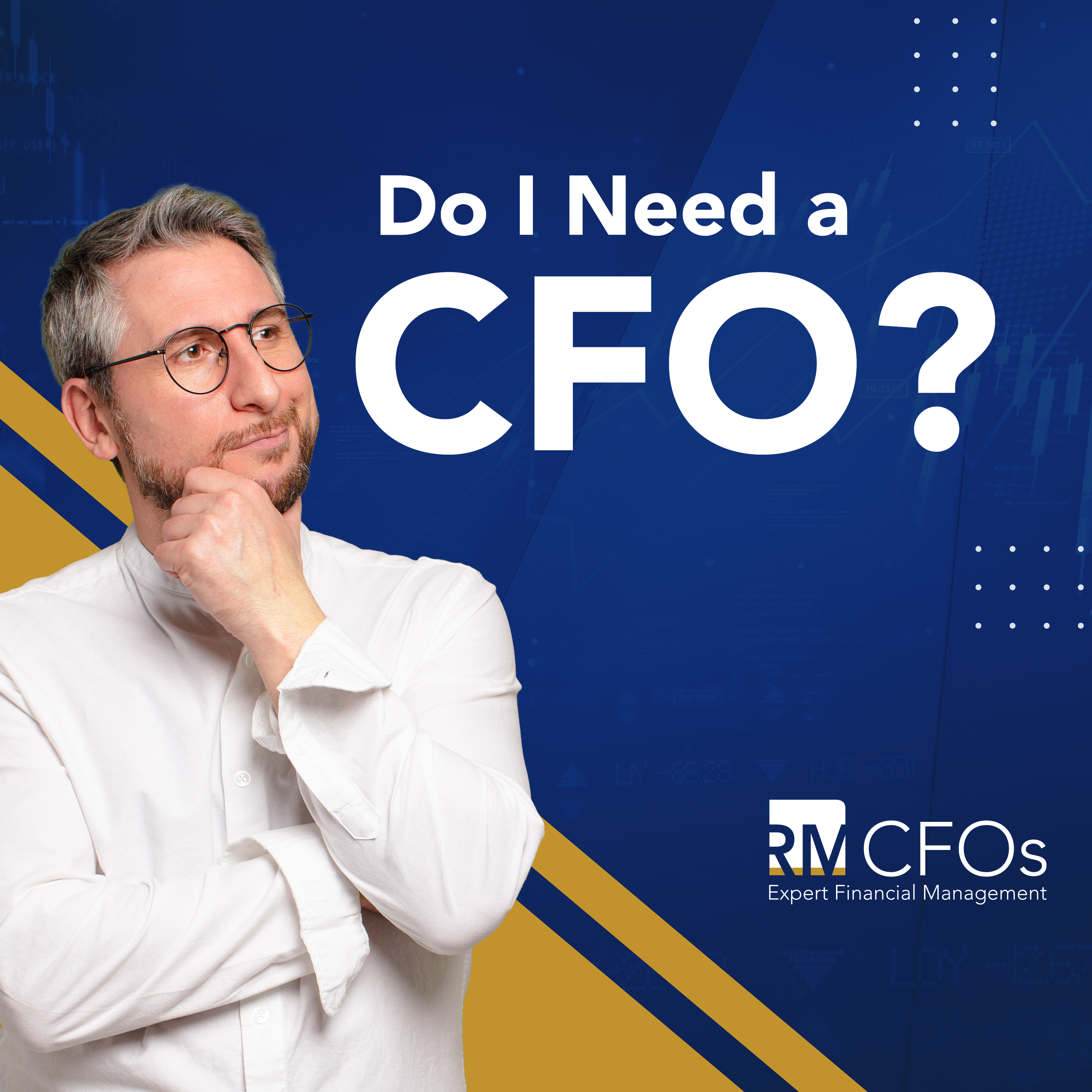Episode Transcript
[00:00:00] Speaker A: Welcome to Do You Need a CFO?, a podcast series from Rankin McKenzie. This show is designed to help business leaders like you determine if and when your company needs CFO-level leadership. Before we start, a quick disclosure: what you're about to hear is an AI dramatization based on the free executive resources available at rankinmckenzie.com. The voices are synthetic, but the insights come directly from the expertise of Rankin McKenzie's team of seasoned CFOs who have guided hundreds of companies through this decision.
[00:00:36] Speaker B: That's right. And today, in episode one, we're asking the most fundamental question: why does a CFO matter? If you already have an accountant, maybe even a controller, why should you think about adding a CFO to the mix?
[00:00:49] Speaker A: Exactly. To answer that, we're going to explore four core areas: visibility, strategy, risk management, and partnership. Each shows how a CFO isn't just another financial role, they're a transformational one. Let's start with visibility. Running a company without a CFO often feels like driving a car at night with your headlights off. You might be moving forward, but you can't see far enough ahead to steer safely.
[00:01:16] Speaker B: I once worked with a business owner who knew top-line revenue to the penny every week. But when I asked how much cash runway they had—how long they could operate without new sales—they couldn’t give me an answer. That's visibility, and it was missing.
[00:01:29] Speaker A: That's such a common story. Bookkeepers and controllers can report on what already happened—last month's sales, last quarter's expenses. But a CFO builds forward-looking dashboards. They model cash flow six months out. They track KPIs in real time. They give leadership data to steer the business, not just admire the scoreboard.
[00:01:52] Speaker B: So the red flag for visibility is when leadership makes decisions based on gut feel, not numbers—or when financial reports arrive so late they're basically history lessons.
[00:02:02] Speaker A: Exactly. Visibility is about confidence. With a CFO, the CEO doesn’t just know where the company has been, they know where it's going next. Let's talk about strategy. A CFO isn’t just a technician, they're a strategist. They connect the dots between financial performance and long-term goals.
[00:02:20] Speaker B: Here's a real-world example. A regional services company wanted to expand into three new states. The CEO was excited. The market looked strong. But without strategic financial modeling, it was all guesswork.
A CFO stepped in, analyzed expansion costs, projected break-even timelines, and showed that two of the states were viable but the third would drain resources.
[00:02:45] Speaker A: And that's the difference. Without CFO input, the company would have stretched too thin. With a CFO, they grew strategically, not recklessly.
Strategy is about aligning financial decisions with business vision—whether it's expansion, product launches, or capital raises.
[00:03:04] Speaker B: So when owners ask, "Why can’t my controller handle this?" the answer is: controllers keep the plane level, but CFOs chart the flight path. They turn ambition into executable plans.
[00:03:16] Speaker A: Perfectly said. Strategy is where CFOs prove their value beyond numbers. Third, risk management.
Every business faces risks—economic downturns, competitive threats, regulatory changes. Without CFO oversight, risk management is reactive. You only respond after the problem hits.
[00:03:36] Speaker B: I think of a healthcare company that was blindsided by a reimbursement policy change. Suddenly, 30% of their expected revenue was delayed. Without a CFO, they panicked, cut staff, and lost momentum. A CFO would have seen the policy trend earlier, prepared alternative cash strategies, and helped leadership adjust smoothly.
And the benefit goes beyond survival. Banks and investors lend more confidently to companies that demonstrate risk awareness. Employees trust leadership more when they see preparedness instead of panic. Risk management builds credibility.
[00:04:11] Speaker A: Yes, CFOs turn uncertainty into plans. That’s their superpower. Finally, let's talk about partnership. A CFO isn’t just a financial technician. They're the CEO’s co-pilot—a trusted advisor in the boardroom.
[00:04:26] Speaker B: I've heard CEOs say that once they had a CFO, they finally felt they weren’t alone. Someone else was carrying the weight, challenging assumptions, and bringing financial discipline to every big decision.
[00:04:38] Speaker A: Exactly. The CEO often has vision and drive. The CFO adds balance, asking: what does the data say? Can we afford this? What's the risk-adjusted outcome? That dynamic—vision plus discipline—creates stronger leadership.
[00:04:54] Speaker B: And it also helps with communication. CFOs translate complex financial strategies into plain language for boards, investors, even employees. They make sure everyone understands where the company is headed and why.
[00:05:08] Speaker A: Partnership is about trust. The CEO drives the vision. The CFO ensures it's sustainable. Let's recap. CFOs matter for four reasons:
Visibility: they shine the headlights so you can see the road ahead.
Strategy: they align financial choices with long-term goals.
Risk Management: they anticipate and prepare for what could go wrong.
[00:05:30] Speaker B: And...
[00:05:30] Speaker A: And Partnership: they stand shoulder to shoulder with the CEO, guiding the business together.
[00:05:36] Speaker B: And here's the important takeaway. CFOs aren’t just for Fortune 500 companies. Mid-sized businesses, family-owned firms, and high-growth startups all reach a point where financial complexity demands CFO-level leadership. The earlier you recognize that, the stronger your business foundation will be.
[00:05:53] Speaker A: That's it for episode one of Do You Need a CFO?
In episode two, we’ll look at the eight specific triggers that signal when it’s time to bring in CFO-level leadership.
[00:06:03] Speaker B: And remember, this conversation is an AI dramatization based on the free executive resources at rankinmckenzie.com. Visit rankinmckenzie.com/resources to explore those insights yourself.
[00:06:16] Speaker A: Thanks for listening, and we'll see you in episode two.


